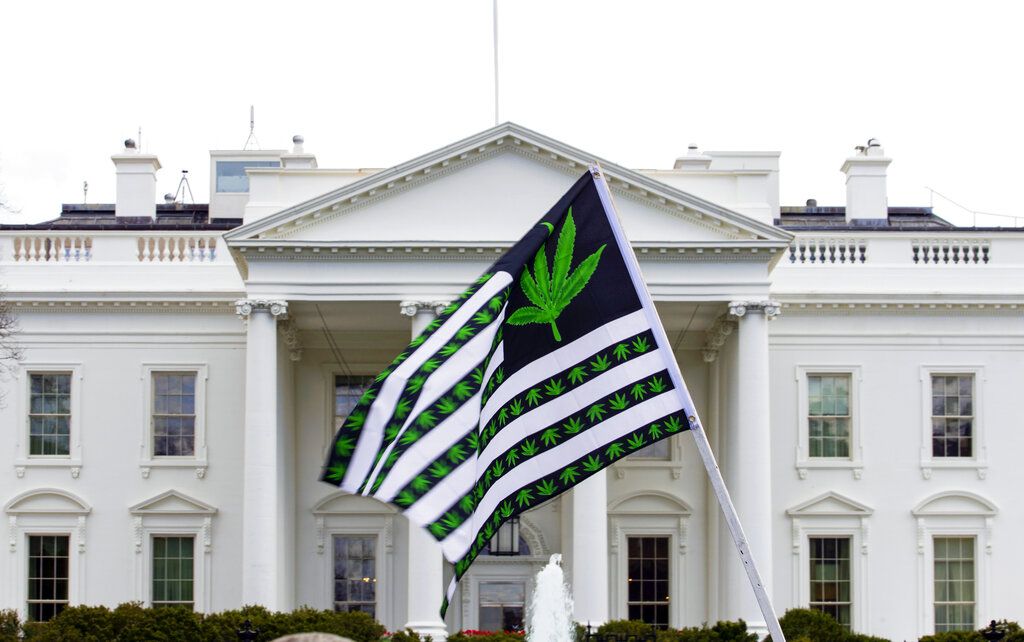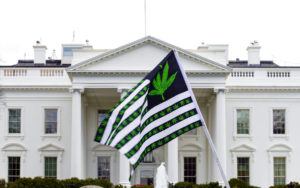
WASHINGTON (AP) – President Joe Biden will pardon thousands of Americans convicted of “simple possession” of marijuana under federal law, as his administration takes a dramatic step toward decriminalizing the drug and addressing charging practices that it contends disproportionately impact people of color.
Biden’s move also covers thousands convicted of the crime in the District of Columbia. He is also calling on governors to issue similar pardons for those convicted of state marijuana offenses, which reflect the vast majority of marijuana possession cases.
He is also directing the secretary of Health and Human Services and the U.S. attorney general to review how marijuana is scheduled under federal law. Rescheduling the drug would reduce or potentially eliminate criminal penalties for possession. Marijuana is currently classified as a Schedule I drug, alongside heroin and LSD, but ahead of fentanyl and methamphetamine. The White House did not set a timeline for the review.
“The last thing this nation needs is the legalization of marijuana and I’m afraid that is exactly what this move portends,” Brent Leatherwood, president of the Ethics & Religious Liberty Commission, tod Baptist Press. “The request for a schedule review of the drug and encouragement for states to do the same serve as markers about the direction this is heading.”
Biden, in a statement, said the move reflects his position that “no one should be in jail just for using or possessing marijuana.”
“Too many lives have been upended because of our failed approach to marijuana,” he added. “It’s time that we right these wrongs.”
According to the White House, no one is currently in federal prison solely for “simple possession” of the drug, but the pardon could help thousands overcome obstacles to renting a home or finding a job.
“There are thousands of people who have prior Federal convictions for marijuana possession, who may be denied employment, housing, or educational opportunities as a result,” he said. “My action will help relieve the collateral consequences arising from these convictions.”
The pardon does not cover convictions for possession of other drugs, or for charges relating to producing or possessing marijuana with an intent to distribute. Biden is also not pardoning non-citizens who were in the U.S. without legal status at the time of their arrest.
The announcement marks Biden’s reckoning with the impact of 1994 crime legislation, which he supported, that increased arrest and incarceration rates for drug crimes.
But Biden said he believes that as the federal government and many states ease marijuana laws, they should maintain limitations on trafficking, marketing and underage sales.
The move by Biden puts the federal government on course with other big cities like New York that have been moving toward decriminalizing low-level marijuana arrests for years. But there’s a big divide in the nation as some police departments still believe the drug leads to more serious crime and ignoring low-level offenses emboldens criminals.
Leatherwood said the culture’s changing landscape does not make the drug less dangerous.
“While our culture has become more and more comfortable with it, the reality is marijuana is a harmful substance that affects individuals, families, and communities,” he said in written comments. “For years, pastors and ministers have had to walk with people through difficult situations caused by this mind-altering drug. A policy that creates more of those negative outcomes is a price that should be far too high for our society to pay.”
From The Associated Press. May not be republished. AP writer Colleen Long contributed. Baptist Press staff contributed.














